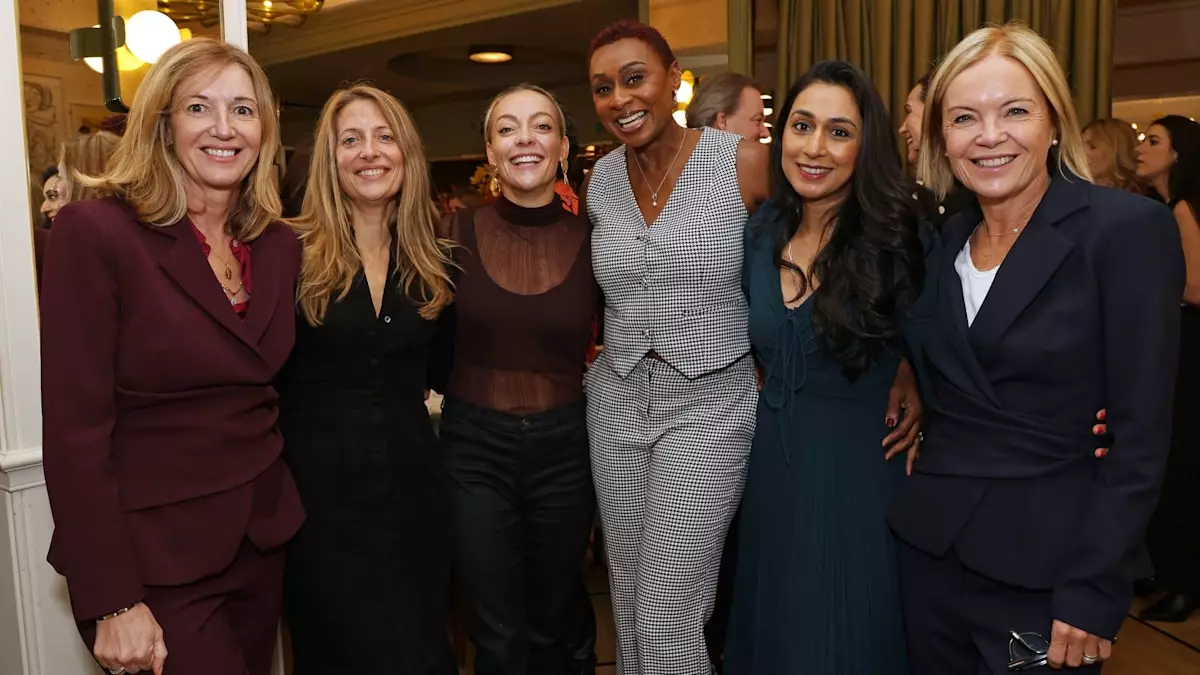October is recognized globally as World Menopause Month, a critical time for raising awareness about women’s health issues, particularly during the often-overlooked midlife phase. Recently, a breakfast panel at Langan’s Brasserie in London gathered influential figures from media, business, and various industries to discuss the strides being made in supporting women experiencing menopause and its related challenges. Hosted by HELLO! magazine, the event spotlighted the significance of workplace support and recognition for female employees entering this life phase.
Attendees included celebrated personalities such as broadcaster Mariella Frostrup, actress Glynis Barber, and TV presenter Cherry Healy, all of whom are engrained in discussions of women’s health. This gathering also served to recognize and honor several crucial “Changemakers” in the community whose contributions have been pivotal in addressing the menopause issue in the workplace. This initiative is part of HELLO!’s ongoing partnership with Wellbeing of Women, which has been instrumental in spearheading the Menopause Workplace Pledge since its establishment in 2021.
Recognizing the Changemakers
Among the highlighted Changemakers were Mariella Frostrup, Janet Lindsay from Wellbeing of Women, and Victoria McKenzie Gould from Marks & Spencer. Their contributions to women’s health highlight an ongoing need to cultivate environments where women feel supported and acknowledged as essential assets in their workplaces. Frostrup herself expressed gratitude for being recognized in this capacity, noting how the acknowledgment could encourage women to speak up and seek support. She emphasized the importance of discussing broader workplace dynamics that largely cater to male employees by stating, “It’s not just about one phase of your life.”
The panel’s discourse underscored the economic rationale for supporting women going through menopause. Companies that empower such employees often see improved performance and financial outcomes, creating a win-win situation for both the workforce and the organization. Frostrup also ventured into the topic of health checks for women over 40, advocating for increased awareness around menopause. With significant health concerns often arising during midlife, she pointed out the need for government acknowledgment and resources to ensure women can manage these changes effectively.
The event also featured presentations from various experts that showcased innovative strategies for fostering a supportive workplace culture. Nadia Alibhai, an osteopath, illustrated how her company integrated menopause awareness into daily operations. By establishing calming staff environments with breathing exercises, they effectively mitigate stress and promote well-being. Similarly, McKenzie Gould from Marks & Spencer shared how the company is innovatively creating uniforms designed with practical considerations for menopause symptoms, like hot flashes.
The message was clear: organizations have a role to play in not only supporting women’s mental health but also in making tangible changes that reflect the realities of women’s experiences. Ruby Hammer, a renowned makeup artist, added that midlife should not hinder a woman’s confidence. Instead, she encouraged women to dress comfortably while making style choices that reflect their identity.
Janet Lindsay expressed excitement about the progress in getting over 3,000 organizations to sign the Menopause Workplace Pledge, a commitment to creating supportive environments for menopausal employees. With newfound resources being allocated to smaller businesses, the potential for significant shifts in workplace culture is more tangible than ever. Lindsay highlighted the intersectionality of gender and health issues, arguing for cohesive strategies that address various challenges women may face, including menstrual health concerns and the gender pay gap.
In addition, Michelle Griffith Robinson passionately championed diversity within discussions of menopause. As a Changemaker who personally identifies as a Black woman, she emphasized the disparities that arise from the lack of representation in health discussions. Griffith Robinson reiterated the importance of sharing experiences and voicing needs to create a more inclusive dialogue around menopause.
The overall sentiment from the esteemed women in attendance resonated with a shared goal: to foster environments where women can be open about their health experiences. With conversations in workplace settings that encourage disclosures, the community will not only benefit those undergoing menopause but also contribute to a wider cultural shift.
As Griffith Robinson succinctly put it, “Communicate what you need and question everything.” This advice is critical as women navigate their midlife experiences. The focused effort on communication, education, and advocacy will ultimately lead to workplaces that empower women to thrive both personally and professionally. Celebrating these significant milestones in support of women’s health is a necessary step toward a more equitable future for all.

